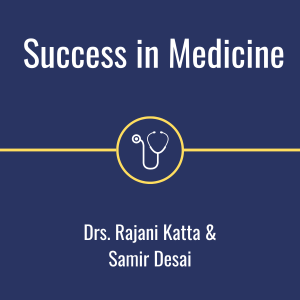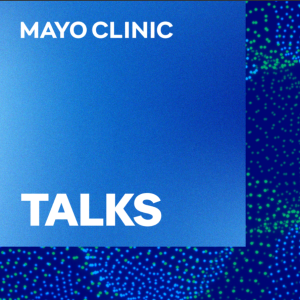
There are several insights shared in this episode with Dr. Anthony Brissett which really struck me as important for career longevity. Dr. Brissett is a facial plastic surgeon and ENT physician. He wears a lot of hats, including responsibilities in clinical care, research, teaching, administration, and increasing responsibilities related to his medical non-profit organization.
He is very mission-driven, which has led him to devote much time to humanitarian work. His work in many countries around the world, from Ukraine to Rwanda, has focused on providing surgical care to patients as well as "developing capacity", in which he has worked to strengthen medical training programs locally. He continues to grow in his clinical practice as well, developing a new area of focus within facial aesthetic surgery called cultural preservation.
Another item that struck me about our conversation was how he gets it all done--always a key question when a physician wears so many hats. He spoke about collaboration, and the African proverb that says that "If you want to go fast, go alone. If you want to go far, go together." He's also very structured about his work week, as well as very persistent in asking for the resources he needs in order to provide the highest quality patient care.
I'm struck by how many of the physicians I speak to who are energized at work combine these two facets of their career. They are very mission-driven and focused on their values, while at the same time place a strong emphasis on the practical side of getting things done.
Dr. Brissett is a board-certified facial plastic surgeon and otolaryngologist. He is a founding member and board member of Casa El Buen Samaritano, which provides free healthcare services. He also travels across the world to provide surgical care, including Ukraine, Rwanda, and multiple other countries.
He is the Director of Facial Plastic and Reconstructive Surgery at Houston Methodist Hospital, as well as Professor of Clinical Otolaryngology, Houston Methodist Hospital/ Weill Cornell Medical College.
More Episodes
Why You Should Consider Writing Program-Specific Personal Statements For Residency
 2020-07-17
2020-07-17
USMLE Step 2 CS Exam Suspended: What IMGs Should Know About New Pathways for ECFMG Certification
 2020-06-19
2020-06-19
The Medical Student Performance Evaluation (MSPE), also known as the Dean's letter, and its importance in the residency match
 2020-06-05
2020-06-05
Step 2 CS Suspension: Implications for Residency Applicants
 2020-05-29
2020-05-29
What Medical Students need to know about Strong Letters of Recommendation and The Residency Match
 2020-05-05
2020-05-05
Coronavirus and the residency match: What US medical students should do next
 2020-04-24
2020-04-24
What to do if your Observership or Externship was canceled due to Coronavirus
 2020-04-02
2020-04-02
USMLE Step 1 Pass/Fail | What This Means for IMG Residency Applicants
 2020-03-13
2020-03-13
Why I Went To St. Matthews University School of Medicine: Advice for Premedical Students
 2020-01-25
2020-01-25
How I Got Into Harvard Medical School: Strategies to Boost your GPA (Part 2)
 2018-07-16
2018-07-16
How I Got Into Harvard Medical School: Strategies to Boost your GPA (Part 1)
 2018-07-03
2018-07-03
Applying to Internal Medicine Residency: 3 Important Factors
 2018-06-26
2018-06-26
How I Matched Into Psychiatry: Interview With Dhruv Gupta (Part 2)
 2018-06-05
2018-06-05
How I Matched Into Psychiatry: Interview With Dhruv Gupta (Part 1)
 2018-04-25
2018-04-25
How I Matched Into Ophthalmology: Interview With Sudip Thakar
 2018-03-28
2018-03-28
Letters of Recommendation for Medical School: A Major Mistake to Avoid
 2018-02-01
2018-02-01
Why I Attended The Windsor University School of Medicine
 2018-01-26
2018-01-26
How I Matched Into Emergency Medicine: An Interview with Brian Fromm
 2018-01-02
2018-01-02
How IMGs Can Find Observership and Externship Opportunities in the U.S.
 2017-12-26
2017-12-26
How IMGs Can Secure Strong Letters of Recommendation from Observership Experiences
 2017-12-11
2017-12-11
Create your
podcast in
minutes
- Full-featured podcast site
- Unlimited storage and bandwidth
- Comprehensive podcast stats
- Distribute to Apple Podcasts, Spotify, and more
- Make money with your podcast
It is Free
You may also like

Mayo Clinic Talks


The Saad Truth with Dr. Saad


Positive Thinking Mind


The Jordan B. Peterson Podcast


The Mel Robbins Podcast


- Privacy Policy
- Cookie Policy
- Terms of Use
- Consent Preferences
- Copyright © 2015-2024 Podbean.com


 iOS
iOS Android
Android